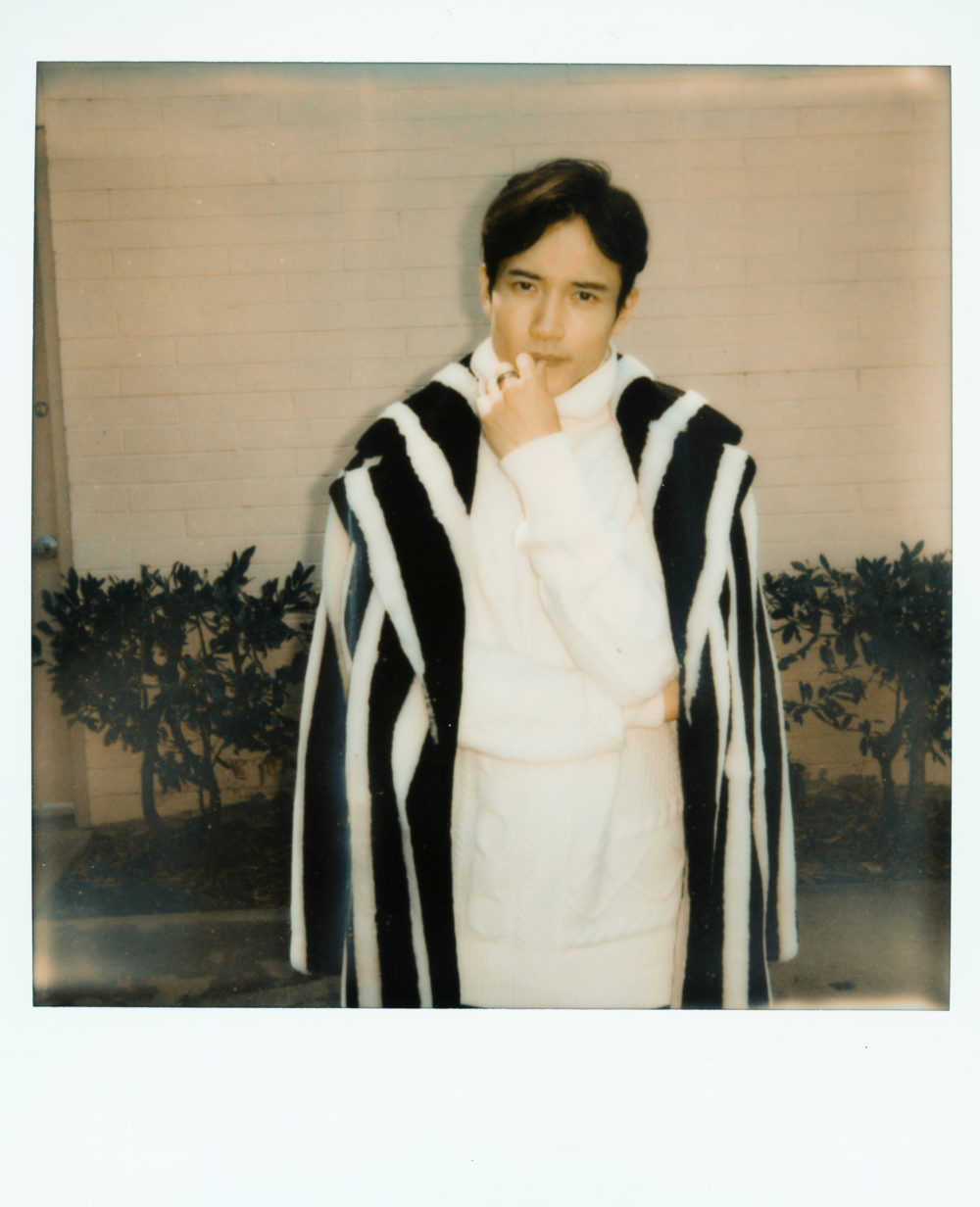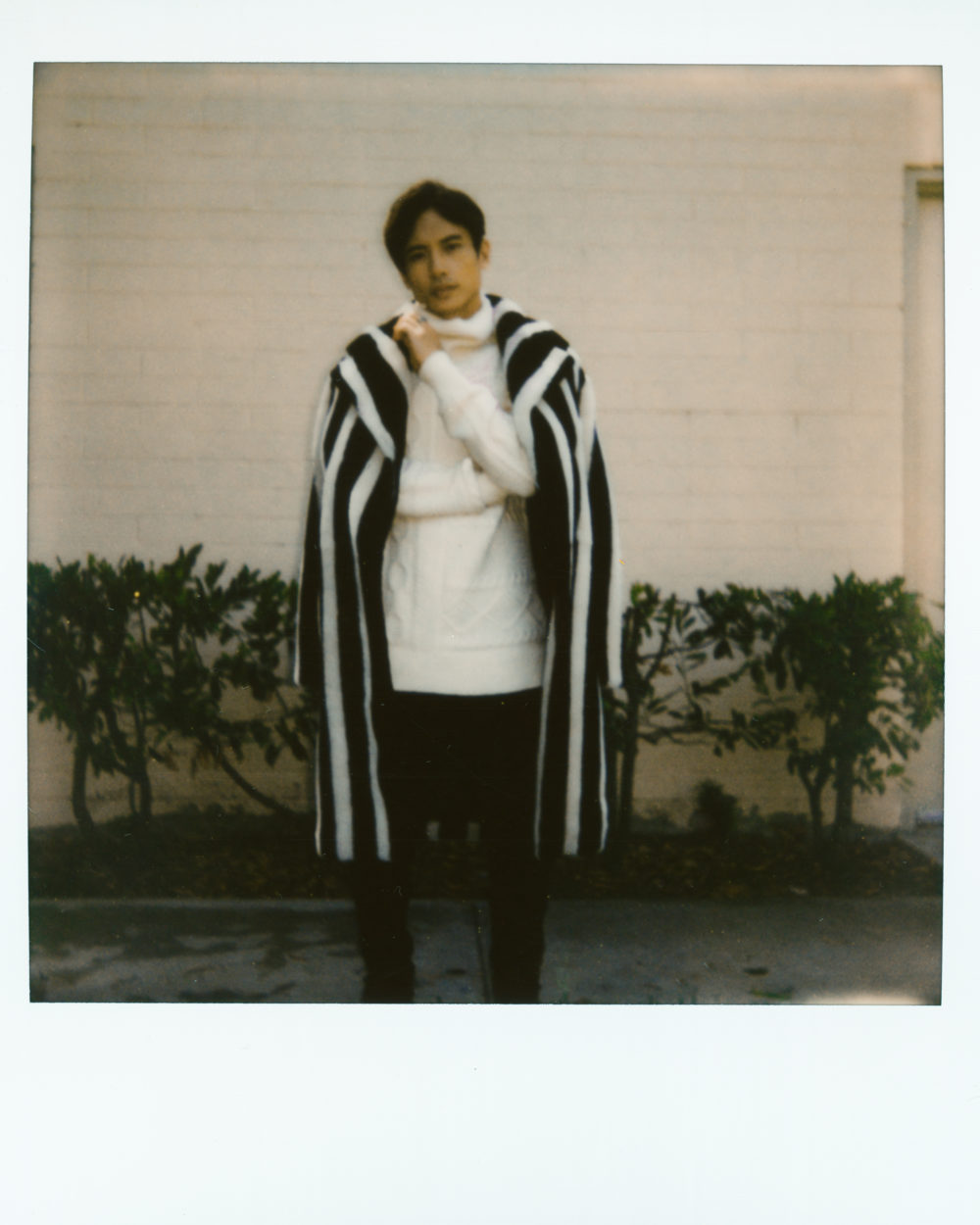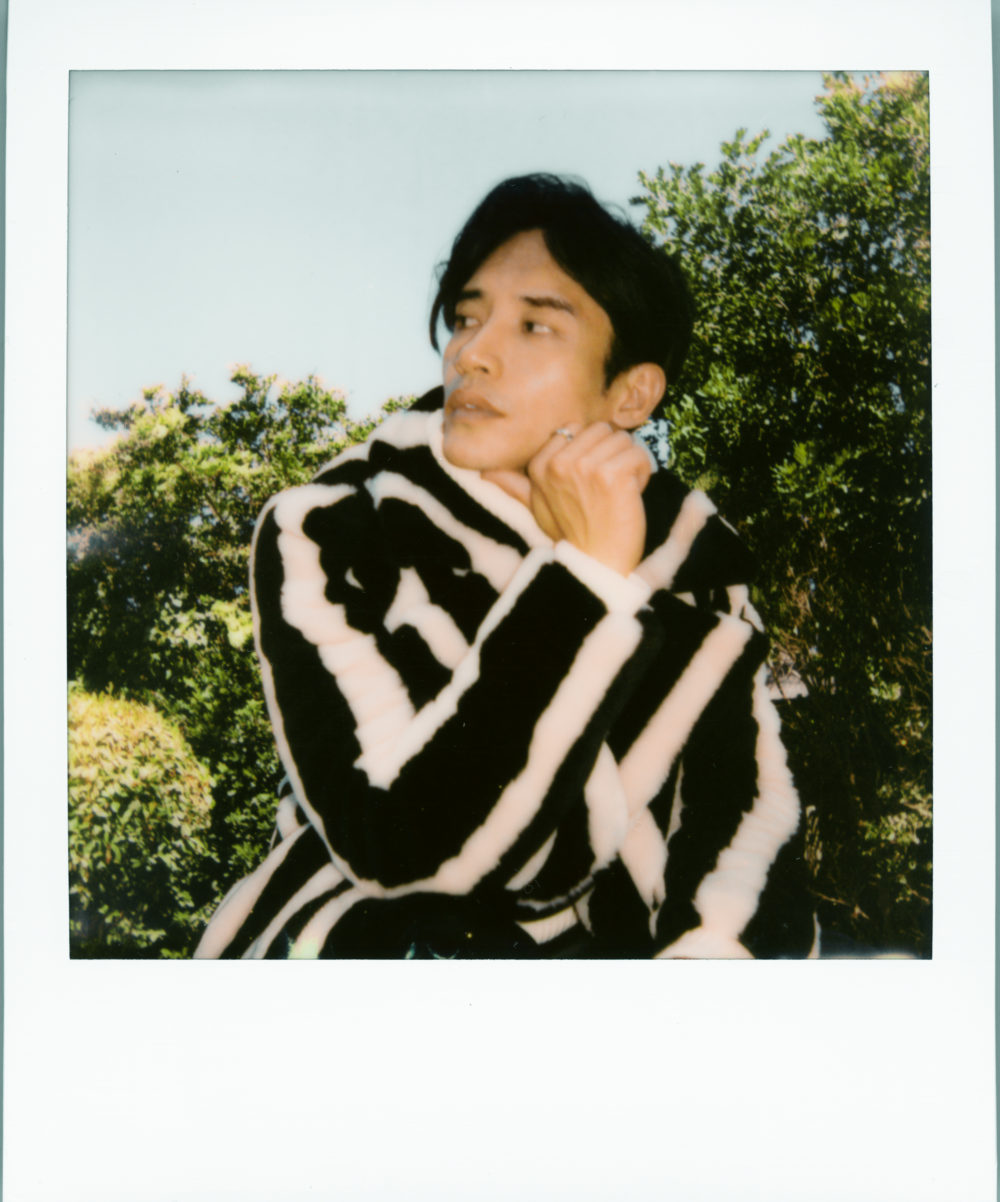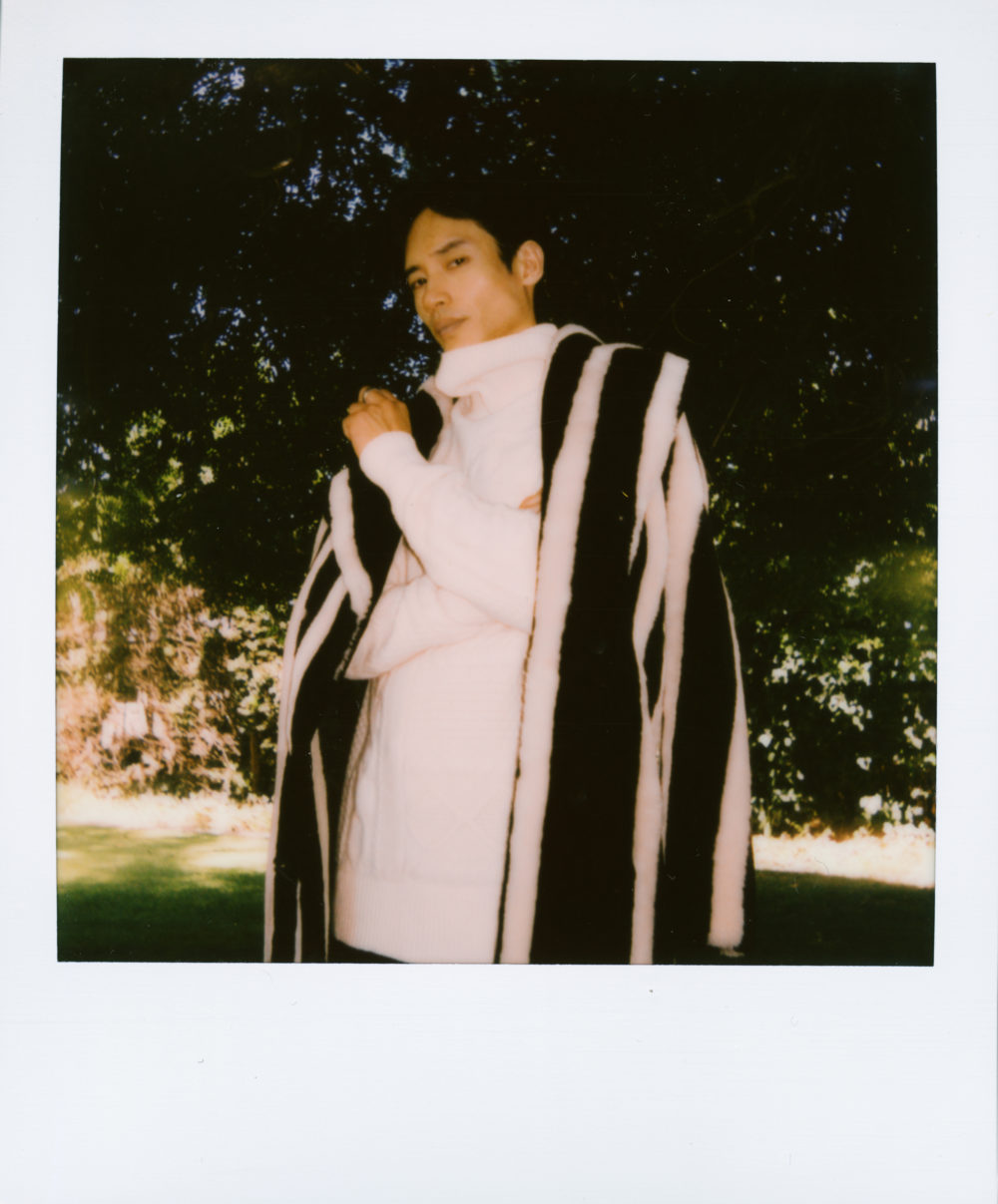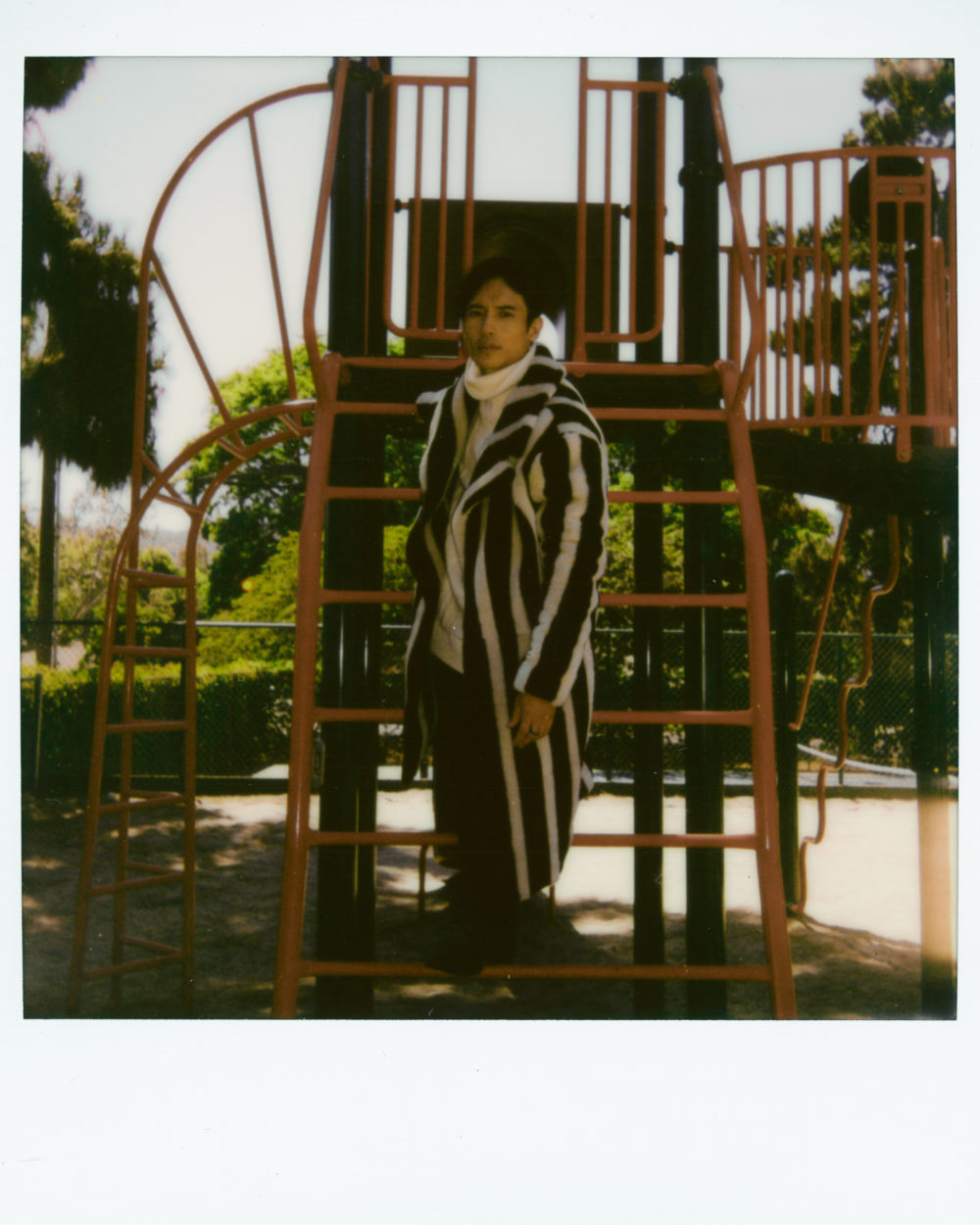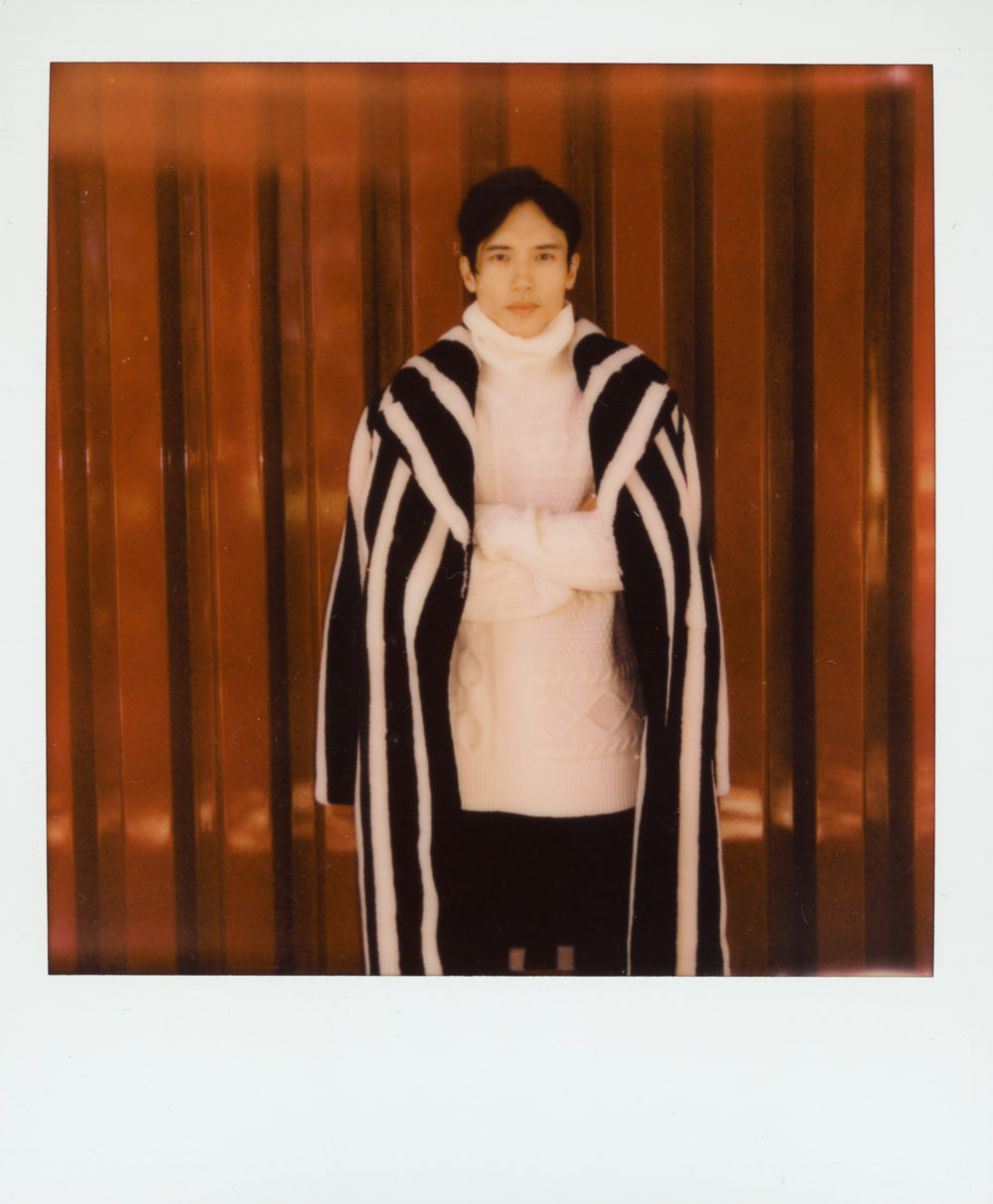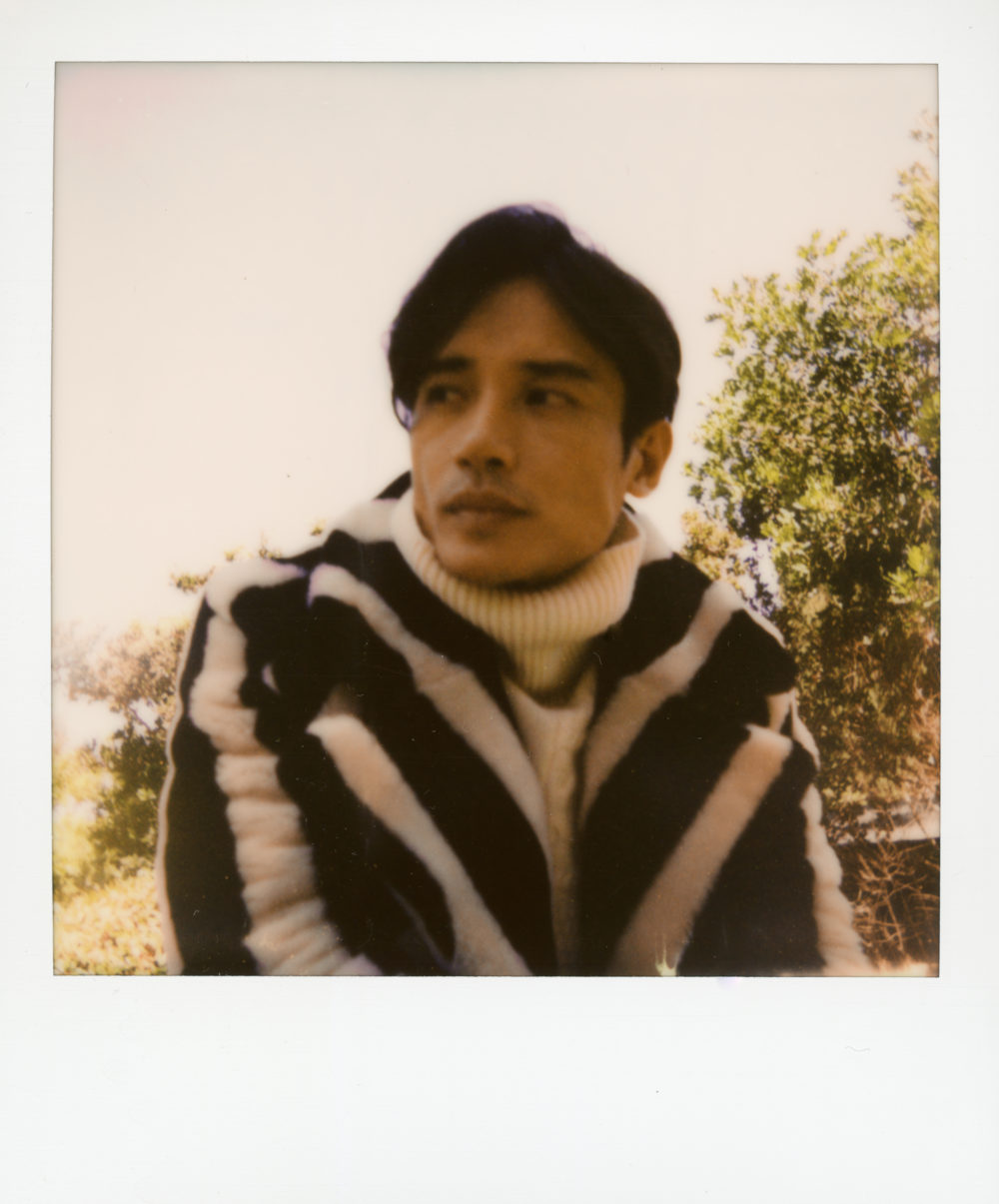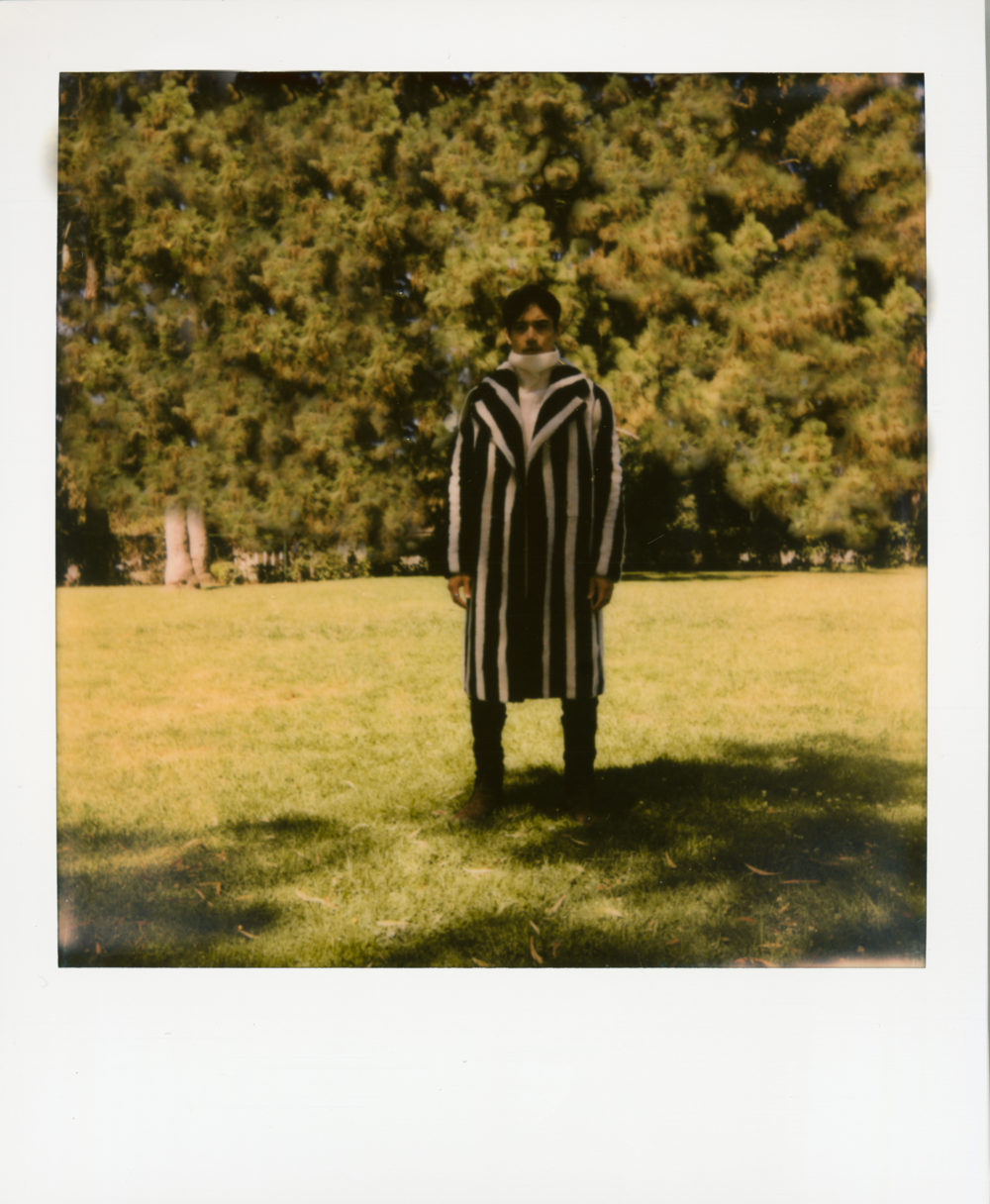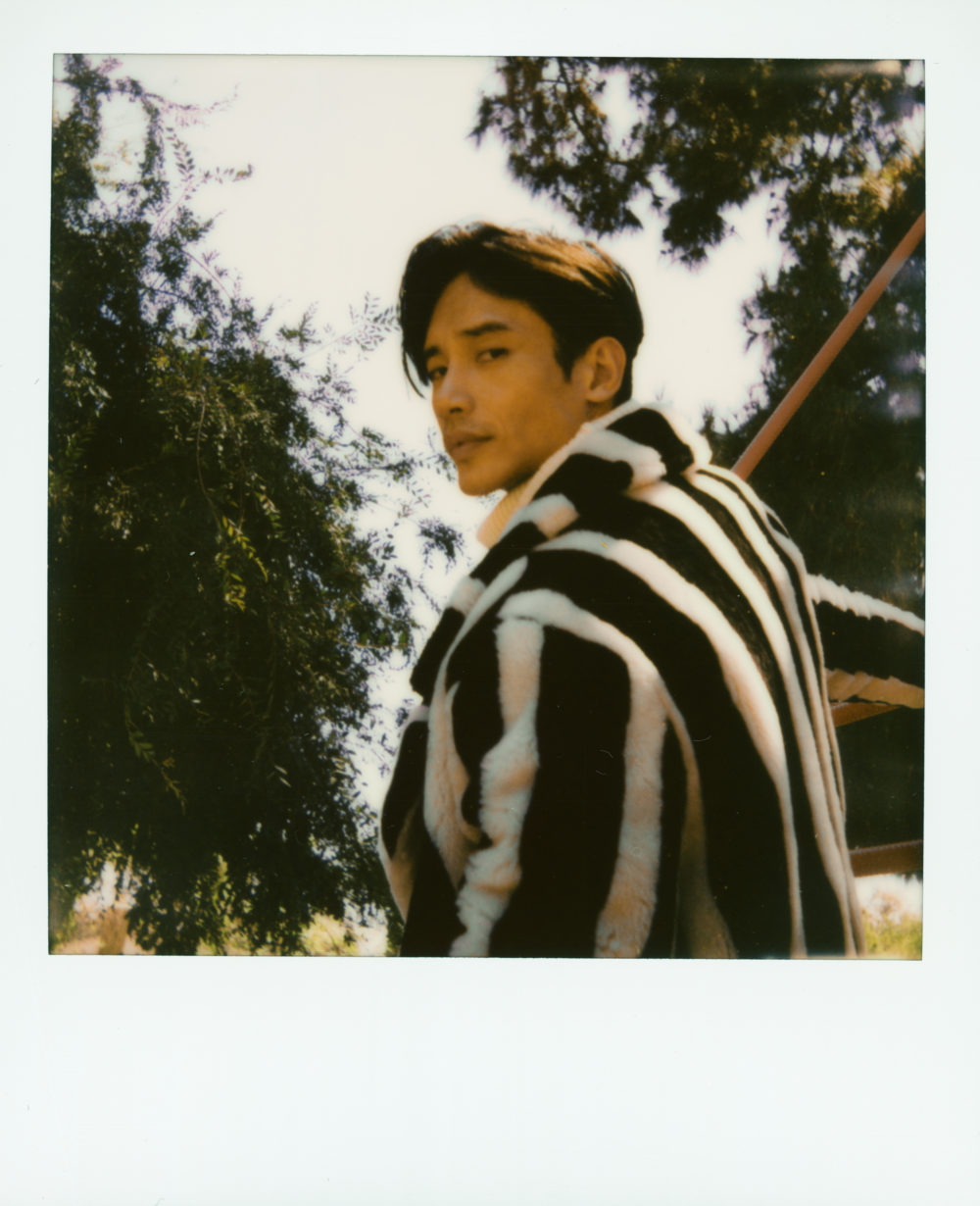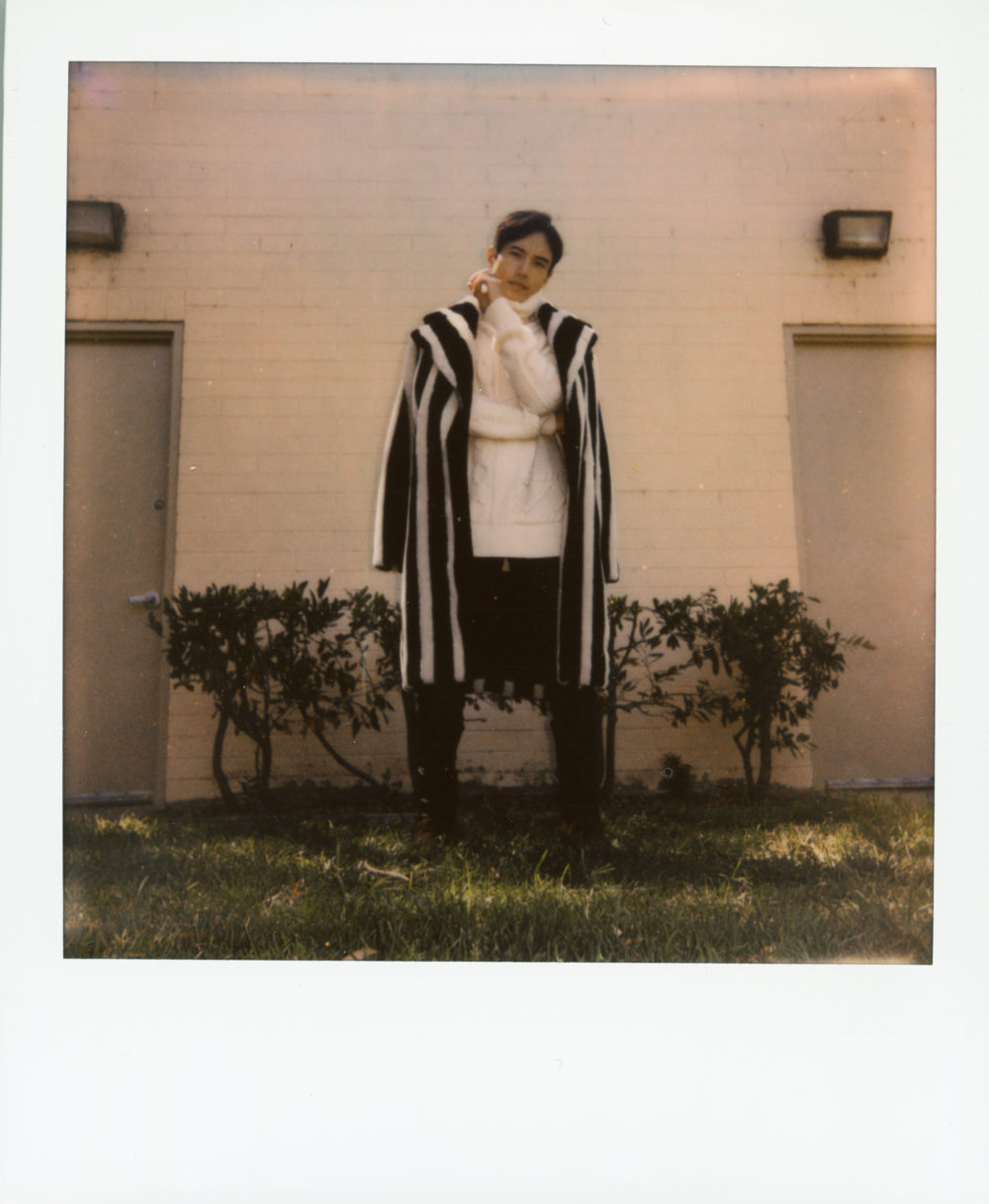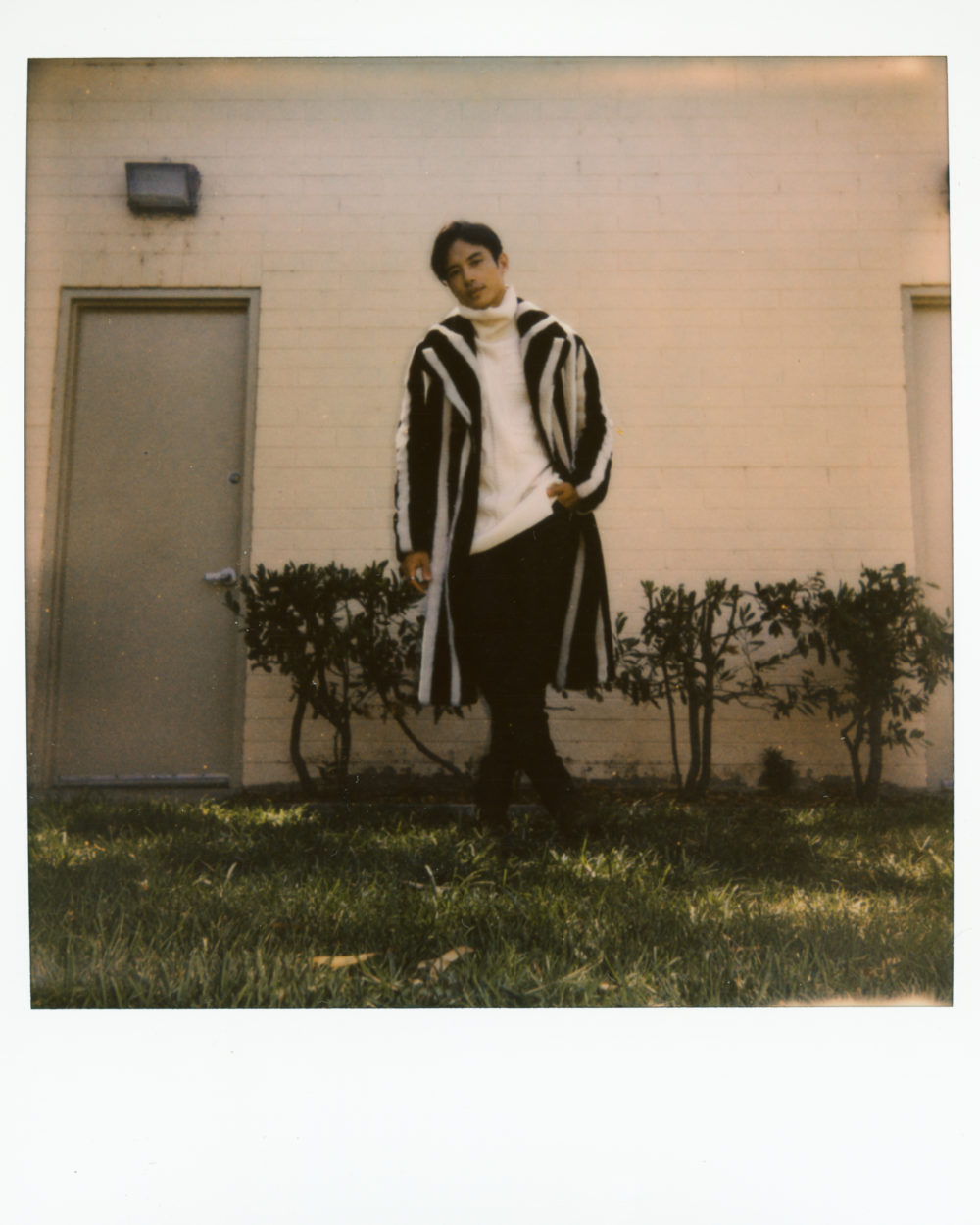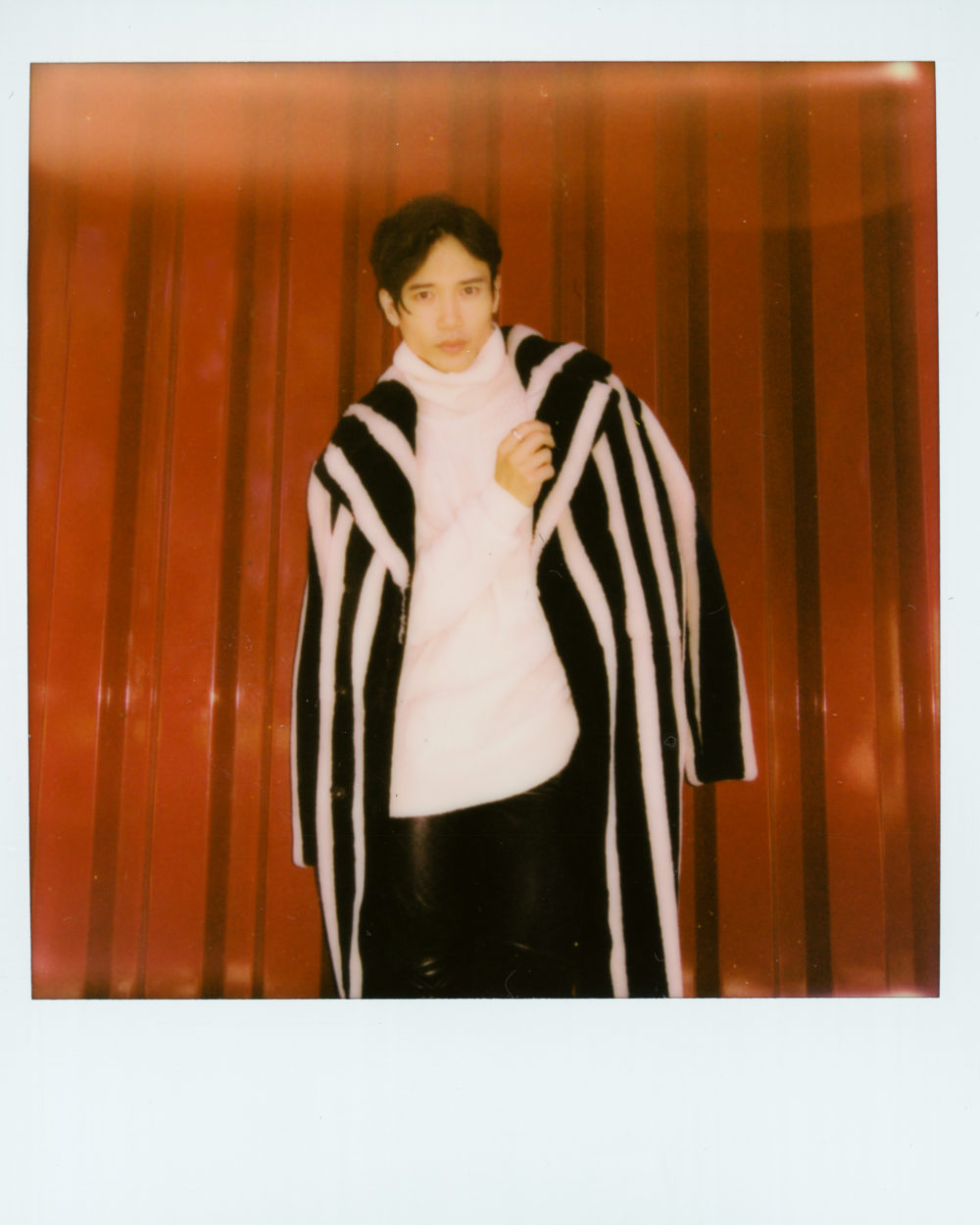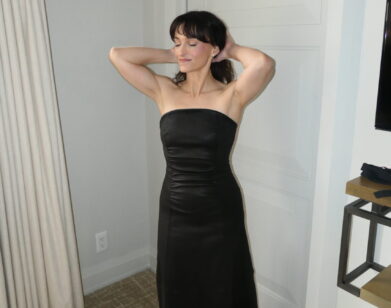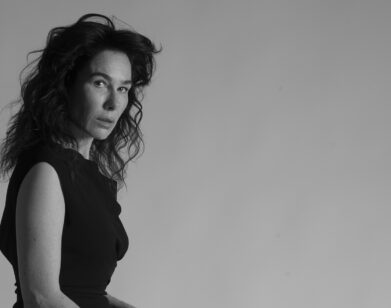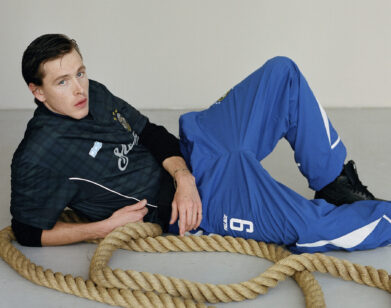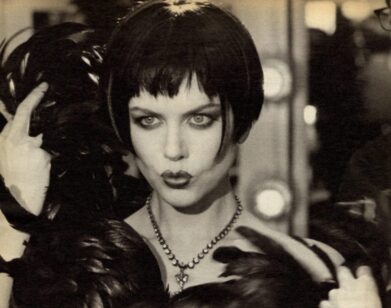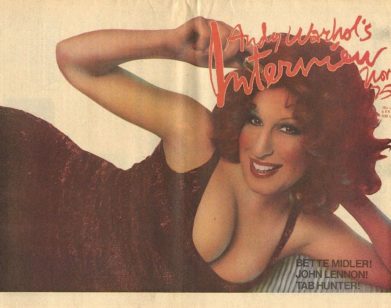IN CONVERSATION
“Protect Your Talent”: Manny Jacintoin Conversation with Nicole Kidman

All clothing by Jacob Lee. All jewelry by David Yurman.
Even though Manny Jacinto shot many of his scenes in Nine Perfect Strangers opposite Nicole Kidman, he rarely spent time with her. To play Masha, the wellness guru who welcomes the titular strangers to her retreat Tranquillum, Kidman reportedly remained in character throughout most of the shoot (which took place in Australia after being relocated from Los Angeles amidst pandemic concerns). But for Jacinto, who plays her mysterious assistant Yao, working alongside such elite acting was exactly what drew him to the Hulu series, which also features top-shelf talent like Melissa McCarthy, Bobby Cannavale, and Michael Shannon. So when Jacinto, whose run as the beloved Jason Mendoza on NBC’s The Good Place ended last year, recently caught up with Kidman, the two of them had a lot to talk about.
———
NICOLE KIDMAN: Hello?
MANNY JACINTO: Hey, Nicole! How are you?
KIDMAN: I’m good, how are you?
JACINTO: I’m great. It’s so good to hear your voice.
KIDMAN: It’s so good to hear yours, too. Where are you?
JACINTO: I’m in Los Angeles right now. Where are you?
KIDMAN: Nashville.
JACINTO: Oh, okay. Excuse me for prying too much, but were you in Hong Kong?
KIDMAN: Yes, I was in Hong Kong and then I came back a week ago. I’m back to being a mother and wife. And then I’m heading off to do Aquaman 2.
JACINTO: Oh my goodness. The busiest woman in Hollywood.
KIDMAN: We’re here to talk about you! I’m so happy you asked me to do this because I’d love to just sing your praises. Everyone asks me about you, by the way.
JACINTO: No way.
KIDMAN: Yes! You’ve got this huge following. They all say, “Tell us about Manny.” But anyway, what drew you to doing Nine Perfect Strangers?
JACINTO: I mean, obviously, being able to work with you. I always say if Nicole Kidman comes calling, you pick up the phone and you go play. The people involved were also a big draw, to be honest. I came from a comedic space and that’s what I was known for, especially in the States. So it meant so much that you, Melissa [McCarthy], and everyone involved trusted me with a more serious and dramatic character. It meant a lot. I was able to exercise other creative muscles.
KIDMAN: I get that. The Good Place was so defining for you in America, right? Which you were fantastic in, but I get wanting to explore all genres as an actor.
JACINTO: Absolutely. That’s why I’m just so grateful that I was able to do this with you.
KIDMAN: I was amazed because you were in character the whole time. You would have this stillness that was so helpful for the scenes because we were able to create that in the space and vibrate together. I loved that.
JACINTO: Right off the bat, I noticed that you needed to connect with somebody because you were in this completely different headspace. I was just like, “I need to be there for Nicole because that’s what she needs right now,” especially in that first huge monologue that you had. You needed some sort of anchor. I’m more than happy to just play with you and be there for you.
KIDMAN: I loved how you were in the middle of the two women. I was thinking, gosh, I wonder how you managed that.
JACINTO: I had to make a decision. Do I want to go towards Masha, the lady that changed my life and who gave me a purpose, or do I go towards the other woman that grounds me and gives me so much love and support? So it was a big push and pull. It was fun trying to go back and forth between those two places.
KIDMAN: Well, I could feel that. The depth of your work was just gorgeous to behold. You brought so much emotion to scenes and there was a gentleness that was really beautiful. What do you prefer: drama, comedy, or something else?
JACINTO: I want to do all of it. I just follow my gut and what moves me. So whether it’s a comedy or drama, I go with what resonates with me emotionally. At the end of the day, that’s what people remember: how they felt. I know we have to ask questions about me, but I am really curious, when you started out, what was your guiding compass?
KIDMAN: I was 14 when I started, so I just had this desire to work. I just wanted to get experience and be in the work. So I’d gone to little drama schools on the weekend. I talk about moments where it’s in your blood and you just don’t have a choice about acting. It’s almost like acting finds you. For me, I was getting pulled towards something that I couldn’t resist. I just wanted to start because each job will lead me to something new and I’ll learn something. I didn’t have the luxury of choice. I was so grateful to have the job, you know? Some jobs will be good and then others will be paying the bills. So that’s a complicated question for me. I started as a working actor and I still consider myself that.
JACINTO: That’s so interesting. For me, I’m going back to that hungry-actor mentality. You can get complacent in the work a bit and take it for granted. It can be a trap, so it’s super refreshing to hear that with how long you’ve been in the industry.
KIDMAN: And I loved the work. My favorite time is when I’m with other actors and something happens and we actually capture it. I don’t know if you have an interest in doing stage. That’s probably a question I have to ask you.
JACINTO: I would love to be able to be on a stage and get that direct feedback from the audience. I love being affected and affecting other people. Right now, I’m trying to write and come up with my own stories. Because, you know, I come from a different culture that hasn’t necessarily been put up on a pedestal yet. I’m trying to create on my own.
KIDMAN: I love that. You’ve actually talked about that, Asian representation on screen and the way that you’re able to subvert Asian stereotypes through your work. That’s incredible power. It’s so great to step aside and watch you do it. But, tell us about what you’re writing.
JACINTO: It’s kind of a hero’s journey. Not to get too deep about it, but…
KIDMAN: No, get deep. We love deep.
JACINTO: Barry Jenkins said to write what you know. The story that I’m starting to explore is about two guys trying to go back to their homeland in the Philippines and try to figure out the gap between their cultural identity and also the identity that they’ve created in North America. I make it sound so dramatic.
KIDMAN: I want to see that! Write that. Don’t not write that.
JACINTO: Yeah, if I don’t write it, I don’t think anybody else will. I need to hold myself accountable. It’s still a work in progress, but there’s something calling me. It goes back to what you were saying about acting, how it was pulling you in a certain direction. I feel that’s what’s happening with writing right now.
KIDMAN: Do you have a discipline for it? I had a call with a writer recently and he was like, “I set the time Monday through Friday and I write.” It’s interesting because some people will go, “That’s not the way to write. I wake up at 3 a.m. and it just flows out of me.” It’s an extraordinary discipline. So, when do you write?
JACINTO: From speaking with a few writers, it is a matter of discipline. I’m sure for some other creatives, they get their writing flow going and they can write all night or all day. But for me, I would have to set times in regards to when I need to write. I was talking to another writer and they mentioned that they go away. Some will rent a hotel room that’s completely bland and with nothing to do so that they don’t have any distractions. They just pop themselves in the room and the only way for them to get out is to finish their piece. I haven’t taken that extreme of measures yet, but it might get to that. We’ll see.
KIDMAN: [Laughs] Gee, that’s actually good. It’s funny that Barry said “write what you know” because do you act from what you know?
JACINTO: Oh, absolutely. Especially in the beginning. As I’ve gotten older and as we take on different characters and projects, I obviously have to use my imagination a lot more. In the beginning, I definitely just acted through what I knew. I was lucky that I was able to experience life a bit and go through a big breakup and experience what it was like to work a nine to five before I really got into acting.
KIDMAN: What was your nine to five?
JACINTO: I was working as a civil engineer.
KIDMAN: What?! That’s a very different nine to five. I so wish I could say I was an engineer. Wow.
JACINTO: It was a completely different life, but I had to make a change. Something else was calling me. I was working as a field engineer and building bridges with carpenters and designers.
KIDMAN: You’re still building bridges.
JACINTO: Metaphorical bridges.
KIDMAN: Yeah, that’s what we’re doing: building bridges. I always describe the work as that. It’s just lovely that you can build bridges not just through the work, but we can also say, “Hey, Manny, help us with the set.” [Laughs]
JACINTO: Yeah, exactly. If you need an extra carpenter at hand, I can try to help out.
KIDMAN: I wish I had something like that. That’s very impressive.
JACINTO: Aw, thanks, Nicole.
KIDMAN: But I also want to say you’re one of the kindest people. You work through kindness. You’re calm and those attributes are a joy to be around. People should know that about you.
JACINTO: That goes straight back to you. I wouldn’t have been able to be so comfortable in those shoes as Yao if I wasn’t acting opposite you. You were very open, generous, and likewise, I believe you operate through kindness and I am so grateful that we were able to do that and have this experience together.
KIDMAN: And I’m glad that it’s been such a huge success. I was like, “Gosh, I really hope that this will connect,” and it did. I hope you’re feeling that.
JACINTO: Absolutely. A lot of people have been coming up to me asking me about the ending.
KIDMAN: They’ve been asking me for a smoothie. Well, we were so fortunate to have you. Tell me about Byron Bay, with my Aussie pride.
JACINTO: Yes, absolutely. You should be prideful. Byron Bay was the perfect setting for me to get into the mindset of Yao because it’s such a holistic place. It’s a place that puts health and wellness first. The energy was incredibly calming. I get a lot of solace from walking around nature. So, I felt super calm throughout the whole shoot because we were surrounded by all this nature. I know that we were supposed to do it in L.A., but it was a blessing that we were able to do it in Australia. It really helped the energy and the aura onset.
KIDMAN: There was a simpleness to it, which I really enjoyed. And we did a blessing for the land, which is such a necessary part of shooting in Australia. And we were blessed by the indigenous people that own the land. I found that beautiful.
JACINTO: Yeah, and it was a great way to bring us together and made us feel welcome. I remember that. It was such a beautiful ceremony.
KIDMAN: It was something different for the Americans. What are you doing next?
JACINTO: Just sitting down and writing. We were talking earlier about the power to choose, and I’ve been able to get to a point where I don’t necessarily need to work purely for financial reasons. I can really focus on the stories and the projects that I really want to tell. I’m being very patient in regards to what I do next.
KIDMAN: I remember Jane Campion saying to me, “Protect your talent.” I see you doing that, and it’s beautiful and so important. Protect your spirit. She wrote it to me when I was really young and I remember being like, “What does that mean?” But there is a sense of needing to protect the talent so that it doesn’t get used and abused, right?
JACINTO: Absolutely. You can be the hottest thing and then burn out. I’m trying to prepare myself for the marathon, not the sprint. I’ll definitely take those words.
KIDMAN: I try to put them into action in my life. I haven’t always been successful, but I try. The artistic journey is long, but I’m so happy and grateful to be a part of yours and will be happy to watch it explode as well. I see it. People just love you. I’m not saying it lightly. They all ask me about you.
JACINTO: Oh my goodness. Before we end, are there any other words of wisdom that you really held to your heart throughout your acting journey?
KIDMAN: I’m always seeking what I don’t know. That’s where I operate from. And at times, it’s really frightening and exciting, but it can feel very untethered at times. But, don’t be frightened of that. Fear is the one thing that can cripple you. Get to that sense of young-actor abandonment. It’s such a wonderful thing to hold onto. Because it’s always, “Okay, well I tried that. Whatever the end result is, as long as I’ve gone in there and done everything I can to do to explore it and have it be as true and as real as possible. I don’t control the outcome of it.
JACINTO: That’s beautiful.
KIDMAN: That’s probably my credos. I’m always trying to remind myself of it. But I’m here for you anytime. I always say that. You’ve got my number, pick it up. Let’s go. Anytime you need me, I’m here.
JACINTO: Thank you so much for doing this. This means the world, honestly.
———
Special thanks to POLAROID.

